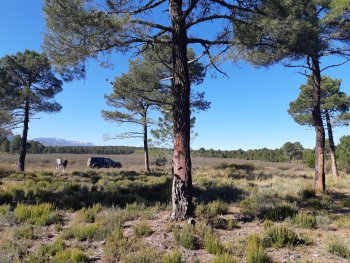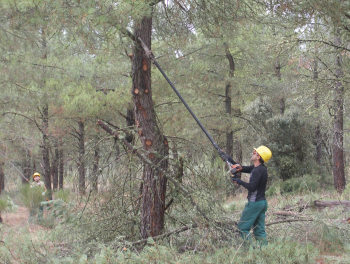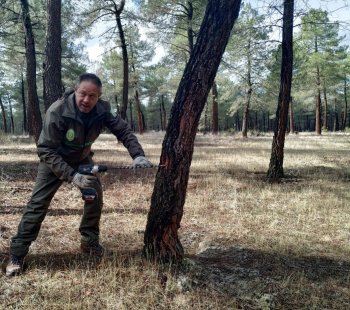Resin cooperativism and business diversification: ingredients for sustainable and quality forestry job
Submitted by Javier Calvo on 31 May 2020Sometimes, the profitability of a natural resource use depends more on the business model and the entrepreneurial culture on which its exploitation is based, than on productivity factors or technological development associated with the use itself.
An innovative business success case, linked to the natural resin extraction activity, such as Pinaster Servicios Medioambientales, can serve as a reference for private entrepreneurs and public decision-makers and administrators to develop and support efficient business strategies that integrate the resin activity.



